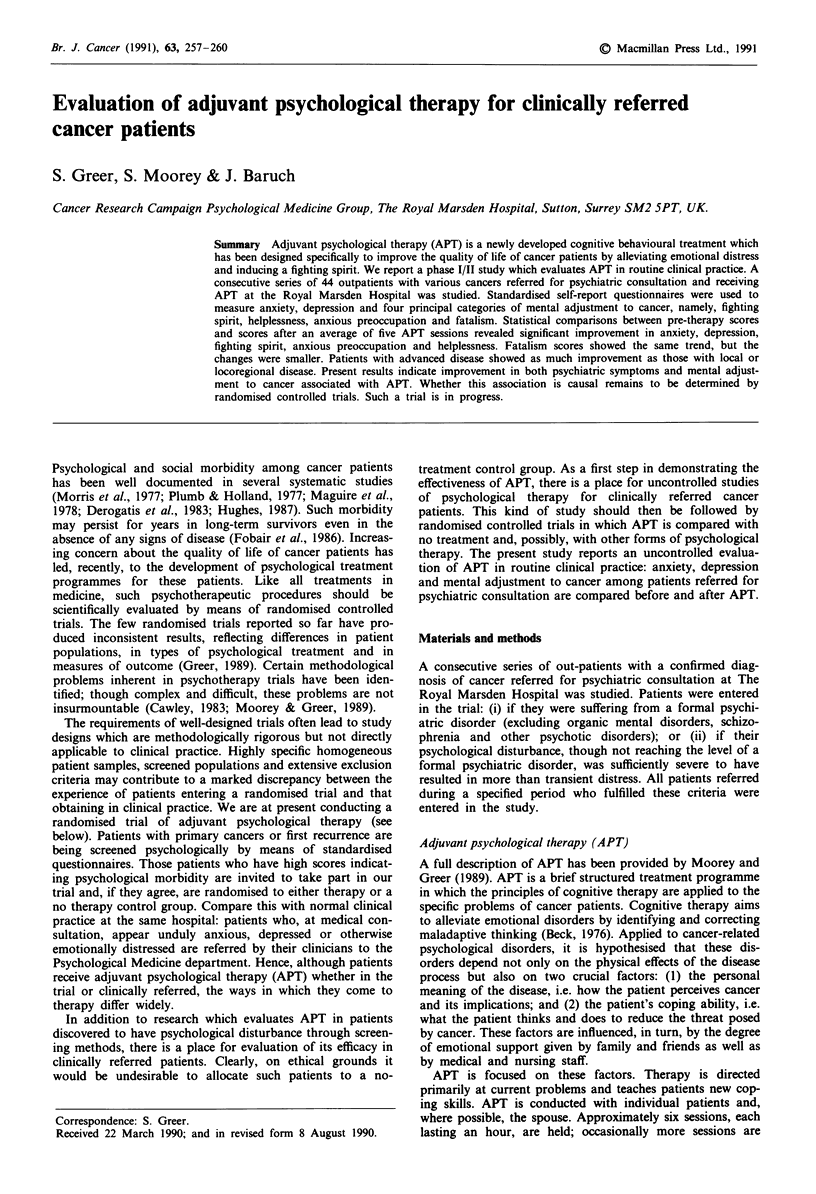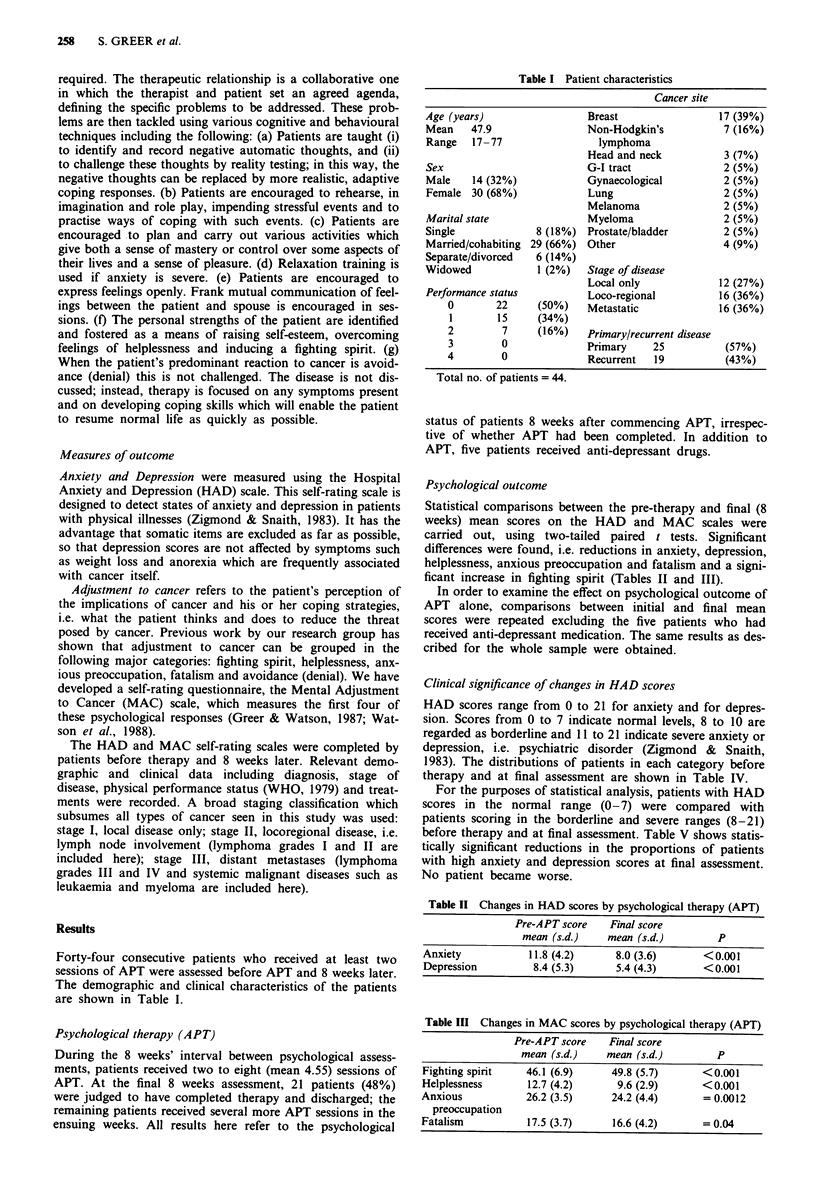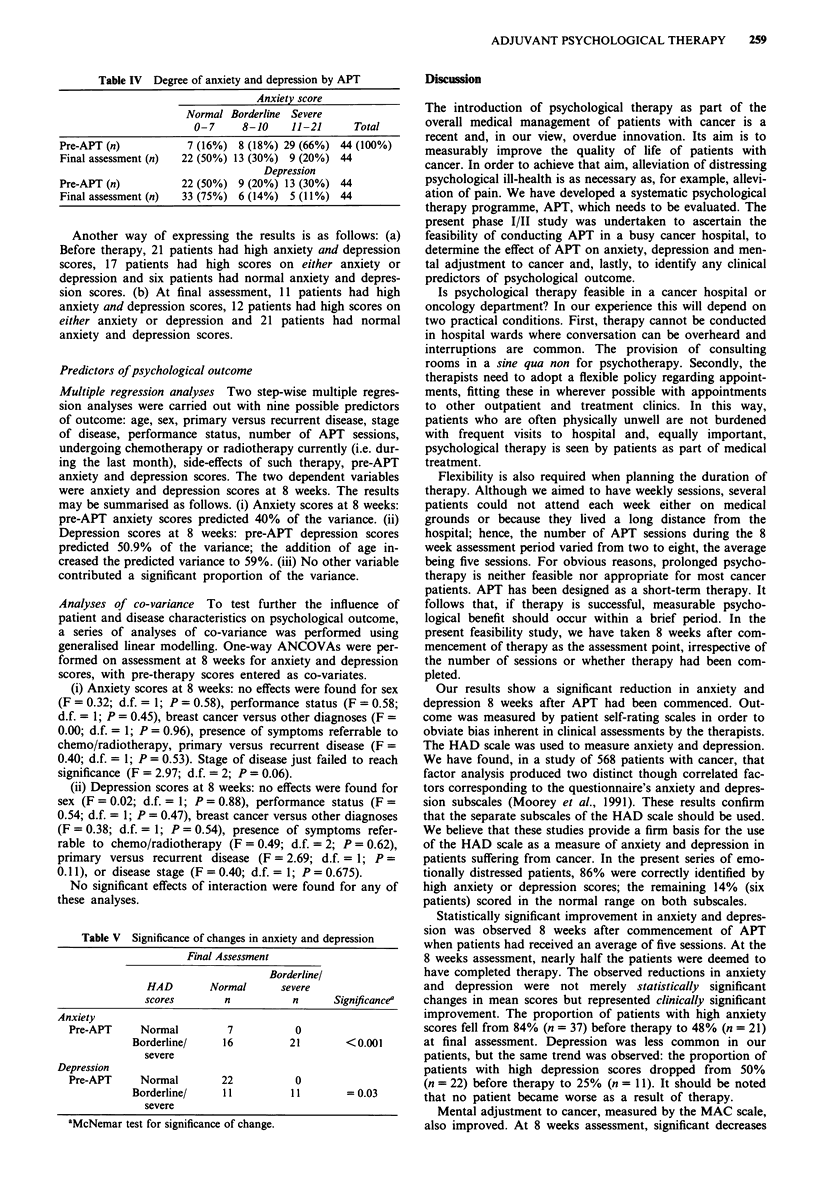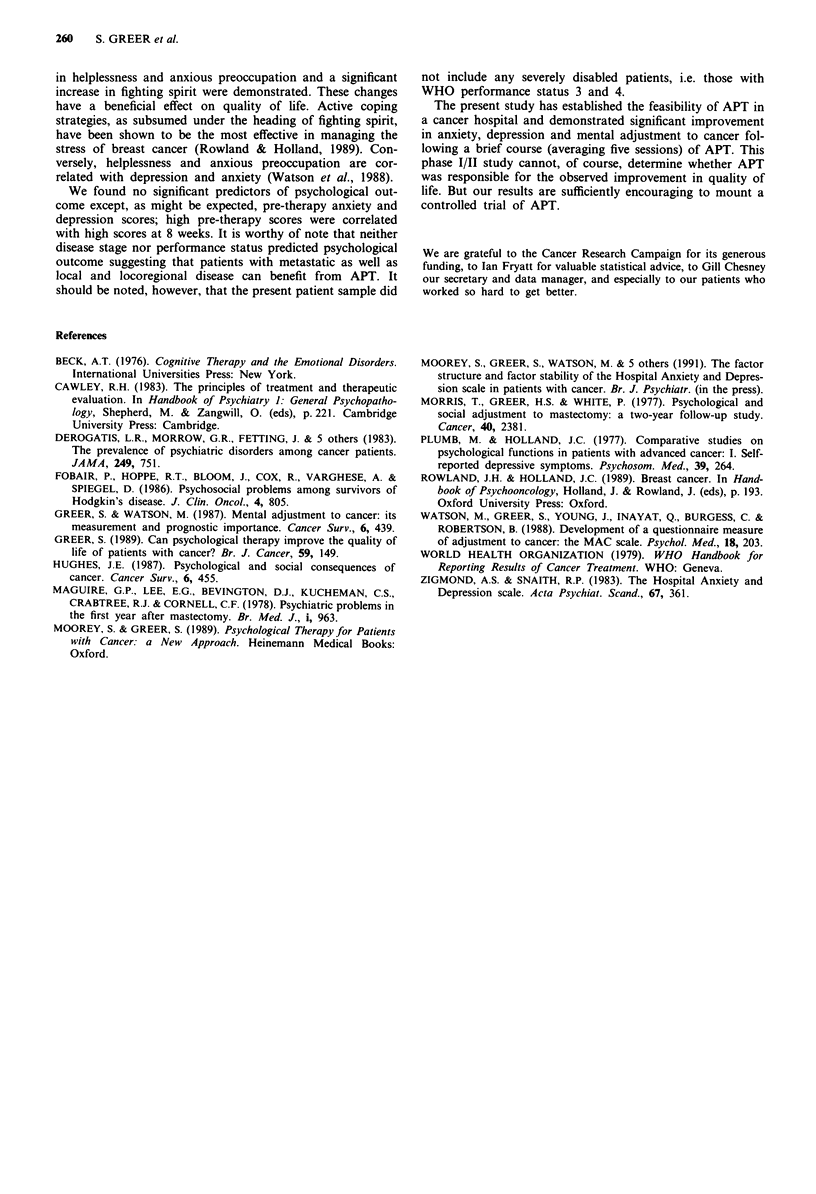Abstract
Adjuvant psychological therapy (APT) is a newly developed cognitive behavioural treatment which has been designed specifically to improve the quality of life of cancer patients by alleviating emotional distress and inducing a fighting spirit. We report a phase I/II study which evaluates APT in routine clinical practice. A consecutive series of 44 outpatients with various cancers referred for psychiatric consultation and receiving APT at the Royal Marsden Hospital was studied. Standardised self-report questionnaires were used to measure anxiety, depression and four principal categories of mental adjustment to cancer, namely, fighting spirit, helplessness, anxious preoccupation and fatalism. Statistical comparisons between pre-therapy scores and scores after an average of five APT sessions revealed significant improvement in anxiety, depression, fighting spirit, anxious preoccupation and helplessness. Fatalism scores showed the same trend, but the changes were smaller. Patients with advanced disease showed as much improvement as those with local or locoregional disease. Present results indicate improvement in both psychiatric symptoms and mental adjustment to cancer associated with APT. Whether this association is causal remains to be determined by randomised controlled trials. Such a trial is in progress.
Full text
PDF



Selected References
These references are in PubMed. This may not be the complete list of references from this article.
- Derogatis L. R., Morrow G. R., Fetting J., Penman D., Piasetsky S., Schmale A. M., Henrichs M., Carnicke C. L., Jr The prevalence of psychiatric disorders among cancer patients. JAMA. 1983 Feb 11;249(6):751–757. doi: 10.1001/jama.249.6.751. [DOI] [PubMed] [Google Scholar]
- Fobair P., Hoppe R. T., Bloom J., Cox R., Varghese A., Spiegel D. Psychosocial problems among survivors of Hodgkin's disease. J Clin Oncol. 1986 May;4(5):805–814. doi: 10.1200/JCO.1986.4.5.805. [DOI] [PubMed] [Google Scholar]
- Greer S. Can psychological therapy improve the quality of life of patients with cancer? Br J Cancer. 1989 Feb;59(2):149–151. doi: 10.1038/bjc.1989.31. [DOI] [PMC free article] [PubMed] [Google Scholar]
- Greer S., Watson M. Mental adjustment to cancer: its measurement and prognostic importance. Cancer Surv. 1987;6(3):439–453. [PubMed] [Google Scholar]
- Hughes J. E. Psychological and social consequences of cancer. Cancer Surv. 1987;6(3):455–475. [PubMed] [Google Scholar]
- Maguire G. P., Lee E. G., Bevington D. J., Küchemann C. S., Crabtree R. J., Cornell C. E. Psychiatric problems in the first year after mastectomy. Br Med J. 1978 Apr 15;1(6118):963–965. doi: 10.1136/bmj.1.6118.963. [DOI] [PMC free article] [PubMed] [Google Scholar]
- Morris T., Greer H. S., White P. Psychological and social adjustment to mastectomy: a two-year follow-up study. Cancer. 1977 Nov;40(5):2381–2387. doi: 10.1002/1097-0142(197711)40:5<2381::aid-cncr2820400555>3.0.co;2-b. [DOI] [PubMed] [Google Scholar]
- Plumb M. M., Holland J. Comparative studies of psychological function in patients with advanced cancer--I. Self-reported depressive symptoms. Psychosom Med. 1977 Jul-Aug;39(4):264–276. doi: 10.1097/00006842-197707000-00007. [DOI] [PubMed] [Google Scholar]
- Watson M., Greer S., Young J., Inayat Q., Burgess C., Robertson B. Development of a questionnaire measure of adjustment to cancer: the MAC scale. Psychol Med. 1988 Feb;18(1):203–209. doi: 10.1017/s0033291700002026. [DOI] [PubMed] [Google Scholar]
- Zigmond A. S., Snaith R. P. The hospital anxiety and depression scale. Acta Psychiatr Scand. 1983 Jun;67(6):361–370. doi: 10.1111/j.1600-0447.1983.tb09716.x. [DOI] [PubMed] [Google Scholar]


